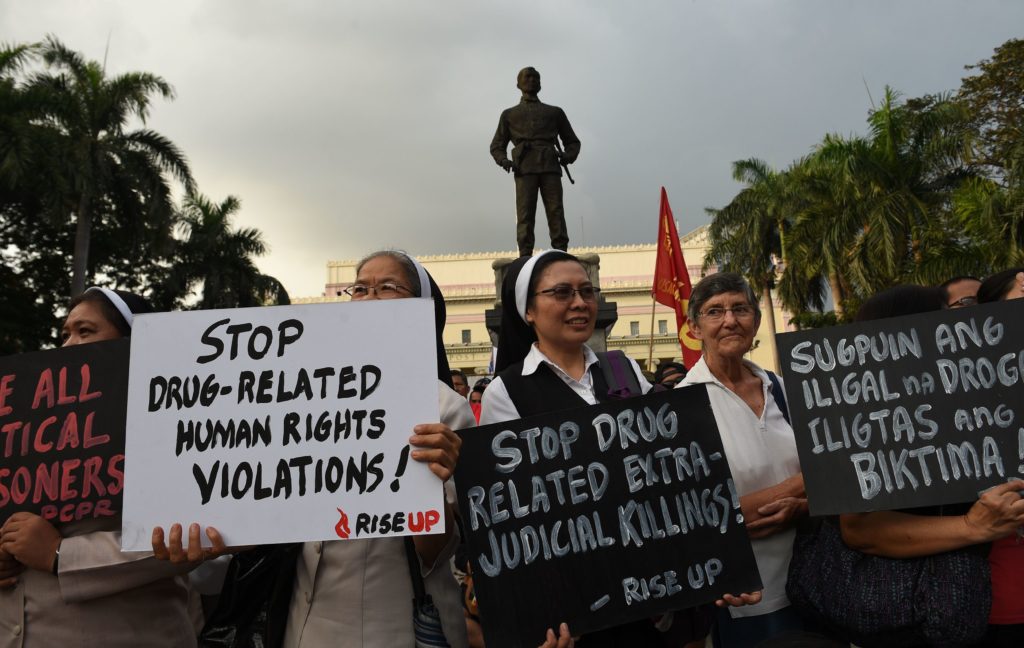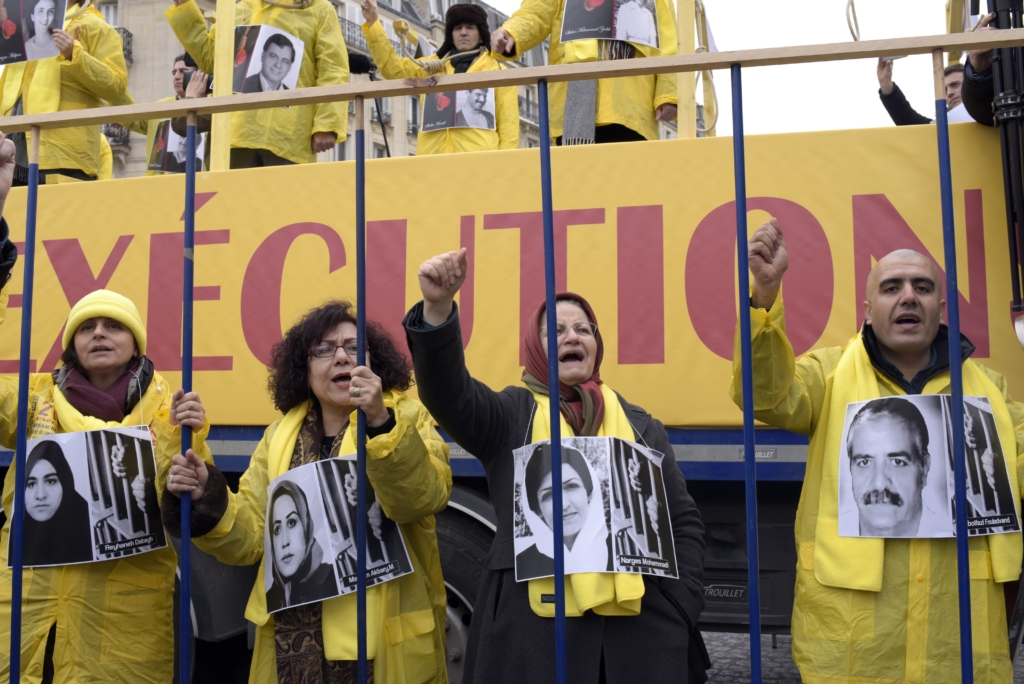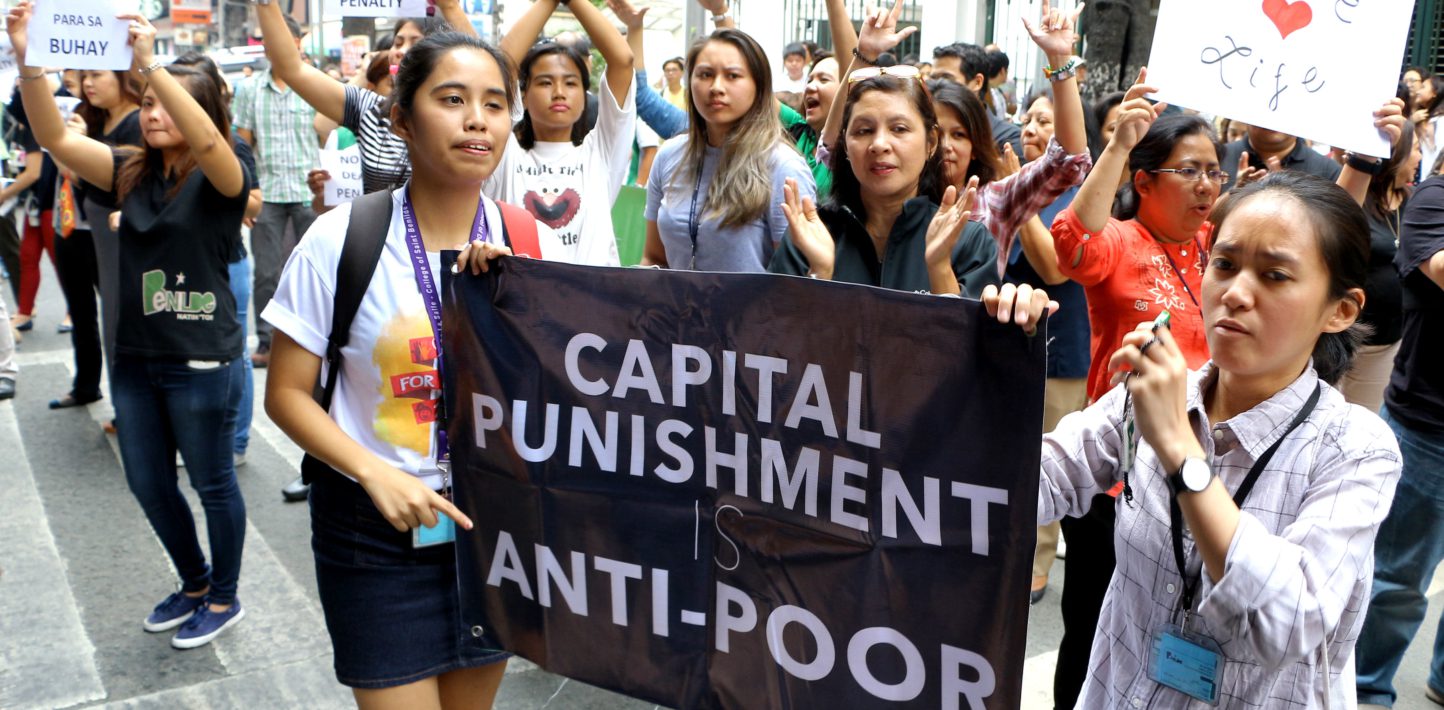Gener Rondina was at home with his family in Barangay Carreta, a low-income neighbourhood of the Philippines’ Cebu City, when the police came for him in the middle of the night. Trembling with fear, he pleaded for his life. “I will surrender, sir,” he cried out, but the police were unmoved. He raised his hands over his head and fell to his knees. The family was ushered out of the room. Then, gunshots rang out.
Rondina is one of several thousand Filipinos slain in President Rodrigo Duterte’s murderous “war on drugs”, with even the Philippines National Police admitting that it has killed 4,000 of them. When it is not arresting people, let alone presenting them in court, but killing them on the spot, the police assumes the roles of judge, jury and executioner. Breaking the very laws they are supposed to uphold, they have acted on the flimsiest evidence to target people suspected of buying or selling drugs, overwhelmingly in the country’s poorest neighbourhoods.
As an Amnesty International report last year documented, “hit lists” were arbitrarily drawn up by local political bosses. In at least some cases, police recruited paid killers to do their dirty work for them, offering bounties per head. In their own operations, the police planted evidence in people’s homes, faked official incident reports to claim there had been a shootout, and stole possessions from their homes. Even in death, the victims were denied their dignity. Their bodies were dragged along the ground and dumped in the street.
An execution is not a show of strength, but an admission of weakness. It represents the failure to create a more humane society, one where the protection of the right to life triumphs over the temptations of vengeance
Omar Waraich
When President Maithripala Srisena’s spokesman said that Sri Lanka hopes to “replicate the success” of the Philippines, is this what he had in mind? Would he like to see Sri Lanka’s most impoverished neighbourhoods become places where people awake each morning to find fresh corpses lying on the streets in pools of blood? Or where, in the name of protecting a younger generation, dozens of children, some as young as four and five, have been killed in the violence? Does he want security forces reduced to a criminal enterprise that sponsors private killers, the rule of law to lose all meaning, and a mere allegation to mean the difference between life and death?
The Philippines, in case some government officials do not realize, is currently the subject of a preliminary examination by the Office of the Prosecutor at the International Criminal Court. The wave of extrajudicial executions, which human rights groups believe to be both widespread and systematic, may lead to an invitation to the Hague for crimes against humanity. It is a policy so extreme that the UN human rights chief has recommended President Duterte seek “psychiatric evaluation”. In a letter that should interest at least one eminent Sri Lankan, the Catholic Bishops’ Conference of the Philippines last year denounced the killings as “a reign of terror in many places of the poor.”

As the government threatens to deploy troops to carry out Sri Lanka’s own “war on drugs”, it is also seeking to revive the death penalty. Executing people convicted of drug-related offences is a violation of Sri Lanka’s legal obligations under the International Covenant on Civil and Political Rights, which restricts the use of the death penalty – in countries that have not yet abolished it – to the “most serious crimes”, or intentional killing. The move would also break with a longstanding Sri Lankan practice. The death penalty, as others have noted, was shunned for long periods in this island nation’s pre-colonial history. Ninety years ago, the Ceylon Legislative Assembly passed a resolution abolishing the death penalty, a move that was thwarted by the British colonial authorities, who insisted on retaining it.
More than four decades ago, Sri Lanka turned its back on the implementation of the ultimate cruel, inhuman and degrading punishment, becoming one of the few South Asian countries to do so. Afghanistan, Bangladesh, India and Pakistan belong to a shrinking minority of countries that still persist with the practice. In 2017, just four countries were responsible for 84% of the world’s executions. In 2016, by contrast, 117 countries – including Sri Lanka – voted in favour of a call for a moratorium on executions with a view to abolishing the death penalty at the UN General Assembly.
Executions are never the solution. As criminologists have demonstrated in study after study, the death penalty has no unique deterrent effect. Hong Kong, for example, stopped executing people over half a century ago. Singapore, a similar-sized city, still implements the death penalty. Despite these different approaches, the murder rate in both cities has stayed remarkably similar over the decades, failing to produce the deterrent effect Singapore’s government claimed it would.

When it comes to executing people for drug-related offences, few countries have been as prolific as Iran. It has executed thousands of people after convicting them of drug trafficking charges in grossly unfair trials. And yet drug trafficking and distribution remains a serious problem. “The truth is, the execution of drug smugglers has had no deterrent effect,” as Mohammad Baqer Olfat, Iran’s deputy head of judiciary for social affairs, conceded in 2016. Over recent months, Iran has relaxed its drug laws and, just weeks ago, the authorities announced that hundreds of people have had their death sentences for certain drug-related offences commuted as result.
The death penalty is irreversible. There is no coming back from a flawed judicial process. The punishment is absolute. The mistakes are irredeemable. A coerced “confession”, the bias of a judge, the failure to collect evidence, or an inadequate legal defence can lead to someone innocent paying the ultimate price. It is also a punishment that disproportionately affects people living in poverty. “This turns it into a class-based form of discrimination in most countries,” as UN experts warned last year.
Lastly, but most importantly, the death penalty is immoral. If we believe that human life must hold the highest value, we must conclude that taking it away is the lowliest act. This much is clear when a person commits murder. Is it any different when the state commits the same act, inflicting the same pain and loss? An execution is not a show of strength, but an admission of weakness. It represents the failure to create a more humane society, one where the protection of the right to life triumphs over the temptations of vengeance.


